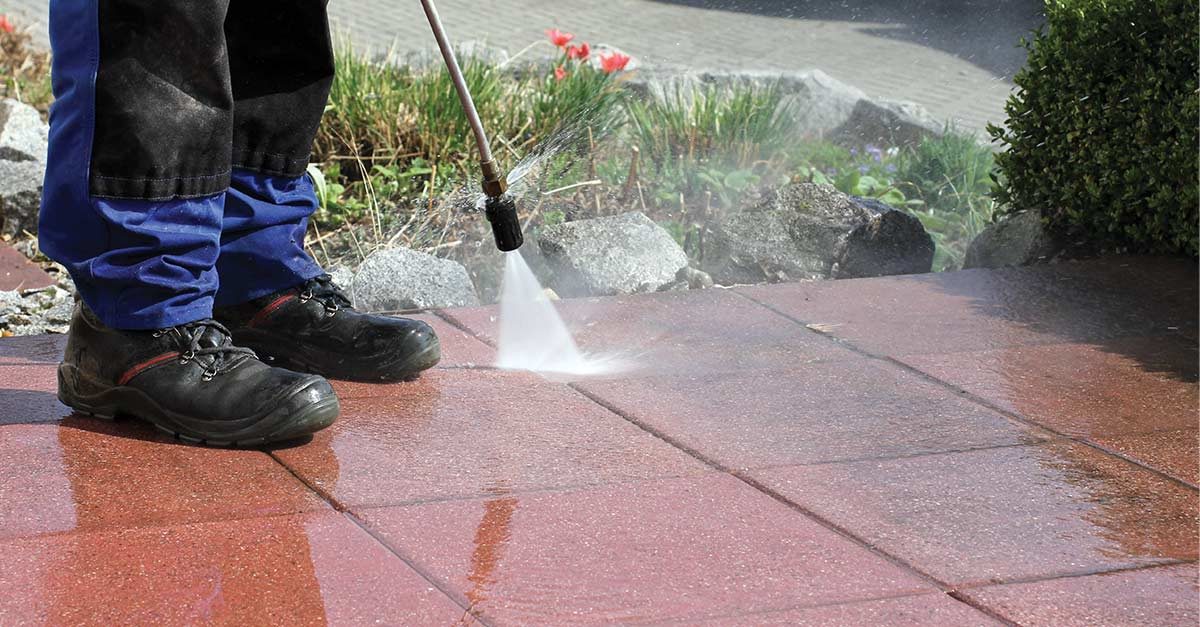Exterior building cleaning is an often overlooked step in facility care. While there are many reasons to wash a building’s exterior, the first and usually foremost reason comes down to appearances.
When customers or employees walk into a building they quickly notice whether it is clean, which leads them to form either a good or bad first impression of the business. The same holds true for the exterior of the facility. A hotel with a filthy front sidewalk and dirty lobby will give people a poor impression. Taking steps to keep exterior areas clean is an effective way to help create good first impressions of your building.
Keep Dirt Outside
Much of the soil found in commercial buildings is carried in with foot traffic. Removing those soils from your interior surfaces is crucial to the longevity of your carpet and floor finishes.
Many building managers put down several feet of matting at building entryways to scrape the soils off pedestrians’ shoes. Matting is an easy step that can stop a significant amount of the soil from making its way onto your carpet and hard floors. But eliminating some of the soil at your facility’s entrance will mean there is less dirt for the matting to scrape.
Sweeping the cement sidewalks, as well as any asphalt or steel surfaces around your facility, will help remove dry soils but cannot eliminate greasy or oily debris. That’s where a regularly scheduled power washing comes in handy. The forceful stream of water from power washers dislodges stubborn soils and flushes them away.
Power Washers to the Rescue
Power wash all areas anyone who enters your facility would walk on, such as sidewalks, parking lots, entrances, pool areas, and patios. The frequency of power washing depends largely on the environment. If your facility is in a dry, dusty climate, you can bet that dry soils will accumulate much quicker and require more frequent power washings.
With the wide variety of power washers available, it should be simple to find one that best suits your needs. Electric units are quieter than gas units so they can be used during business hours. However, they are limited to areas with a power outlet. Gas-engine driven units are more mobile since they do not have to rely on a power outlet nearby. Since they are more powerful and clean surfaces quicker than the electric units, it may not be a problem that they can only be used when few people are around.
Hot water units are best for cleaning areas with a lot of greasy or oily soils. Furthermore, hot water units tend to clean faster than cold water units of the same size since they break down oil and grease quicker.
Even with cleaning budgets tightening, investing in a power washer makes good business sense. If the soil can be kept outside of the building, you will not be spending large sums replacing carpet or stripping and refinishing floors.



